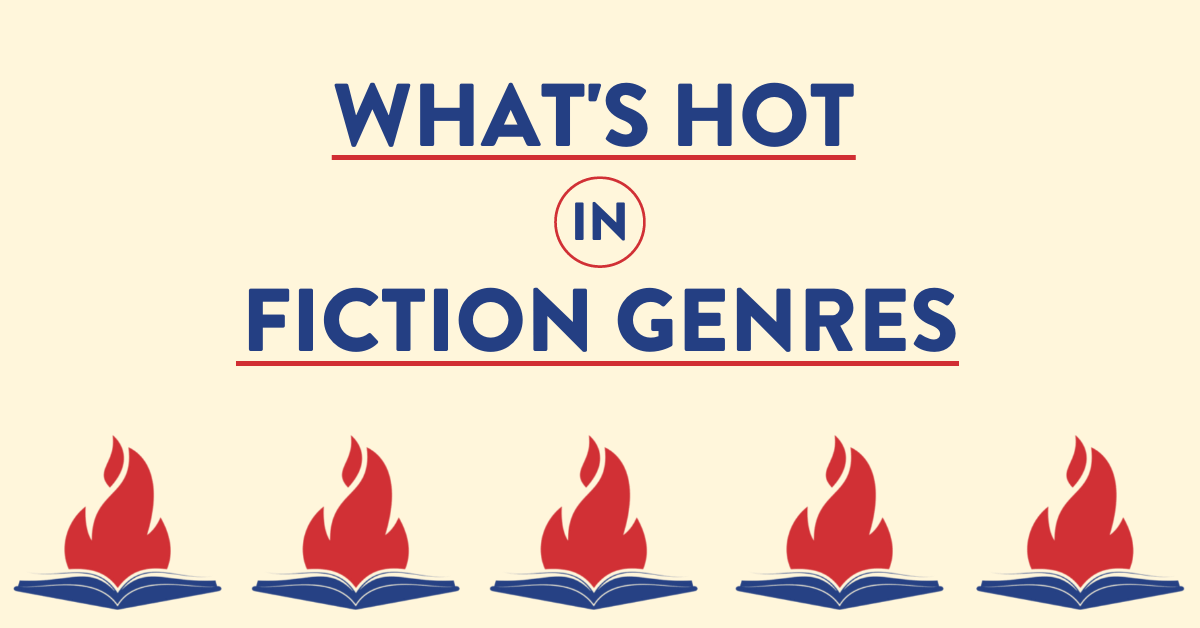
Guest Post by Mark Gottlieb, literary agent at Trident Media Group
You have written a book and decided to give it a genre label, but what to call it? The question is a lot more important than it may seem… Certain genres perform much better in the marketplace than other genres.
That means if you label your book with the wrong genre, it could flop.
Of course, there is something to be said about how book publishing may be an art form, but it should also be regarded for its scientific approaches. In a recent article for Bookfox titled, The Best Months and Worst Months to Submit to Agents and Publishers, I wrote about how too much anecdotal information exists in the publishing industry with regard to how writers should submit.
Instead, writers should look at the data—over any hearsay. To that end, this article encourages the reader to look at the data behind the highest performing genres and underperforming genres in publishing, as drawn from deal sources such as Publishers Weekly.
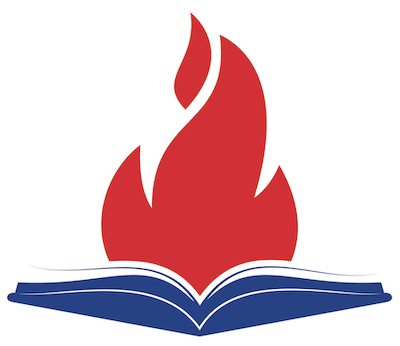
Deal Key
Overall deals: Stands for the total number of deals in the last twelve months, ranked by total number of those deals. This selection was made from the three top-ranking publishers.
Six Figure+ Deals: Stands for amount of money for deals, ranked by total number of those deals. (No other demarcation or ranking for amount of money for deals. Publishing ranks deals monetarily from six-figure+ advances). This selection was made from the three top-ranking publishers.
Genre Deal Rankings
| Fiction Genre | Overall Deals | Six-Figure+ Deals | TOTAL |
| Debut | 42 | 82 | 124 |
| Horror | 15 | 6 | 21 |
| Inspirational | 6 | 19 | 25 |
| Mystery/Crime | 65 | 37 | 102 |
| New Adult | 2 | 26 | 28 |
| Paranormal | 3 | 8 | 11 |
| Sci-Fi/Fantasy | 35 | 92 | 127 |
| Thriller | 31 | 91 | 122 |
| Women’s Fiction/Romance | 189 | 149 | 338 |
| General/Other Fiction | 61 | 118 | 179 |
Overall Leaderboard
- Women’s Fiction/Romance (189 deals)
- Mystery/Crime (65 deals)
- General/Other Fiction (61 deals)
- Debut (41 deals)
- Sci-Fi/Fantasy (35 deals)
- Thriller (31 deals)
- Horror (15 deals)
- Inspirational (6 deals)
- Paranormal (3 deals)
- New Adult (2 deals)
Leaderboard Six-Figure+ Deals
- Women’s Fiction/Romance (149 deals)
- General/Other Fiction (118 deals)
- Sci-Fi/Fantasy (92 deals)
- Thriller (91 deals)
- Debut (82 deals)
- Mystery/Crime (37 deals)
- New Adult (26 deals)
- Inspirational (19 deals)
- Paranormal (8 deals)
- Horror (6 deals)
Of course, underneath every piece of data are our lived experiences. So, with the hat on from my decade-plus career as literary agent Mark Gottlieb of book publishing’s leading literary agency Trident Media Group in New York City, I offer some insights into the data. Here we go…
Hotter Genres

#1 Women’s Fiction/Romance
By far, the strongest genre is Women’s Fiction/Romance with 338 deals between the six-figure+ deals and overall deals categories. I better get in touch with my feminine side!
This should come as no surprise as the majority of people who work in book publishing are women and the majority of readers of fiction are women. With that being said, compiling the genres of Women’s Fiction and Romance, into one larger genre category of Women’s Fiction/Romance, may also contribute to the fact that this appears to be the strongest genre.
#2 General/Other Fiction
The strongest genre category after Women’s Fiction/Romance is General/Other Fiction with 179 deals. Not too shabby…
This should come as no surprise, since labeling a genre with “General/Other” is a very broad genre title—almost anything could fit under that! With that being said, this genre is truly meant to categorize literary fiction and sometimes upmarket fiction. This genre may also draw upon Debut somewhat.
#3 Sci-Fi/Fantasy
Surprisingly, Sci-Fi/Fantasy has risen to become one of the stronger genres with 127 deals. Out of this world!
Previously, Sci-Fi/Fantasy had not been considered one of the healthiest sectors of the marketplace.
There are only a small handful of buyers among major trade big five publishing houses thinking to themselves, “What do I need more than one Sci-Fi/Fantasy imprint for?” This keeps submission lists very small within Sci-Fi/Fantasy.
Though the underperforming genres of Paranormal and Horror, may have replaced their genre tags with Sci-Fi/Fantasy, so be careful how you regard this genre’s place in the rankings.
#4 Debut
Debut comes in next with 124 deals. Keep up the good work!
This is where the data can become rather tricky… As with General/Other Fiction, Debut could easily be categorized as a very broad genre—for any author could make their debut in any given genre.
Furthermore, Debut is a strong category because publishers acquiring authors in this category can only make a subjective decision based around a writer’s work. That is opposed to an objective business decision after an author establishes more of a sales track record with publishing baggage.
The sales history of book one often makes the question of what to do with book two from a Debut rather difficult for publishers.
#5 Thriller
Last but not least in the among hot genres is Thriller with 122 deals. Hell yeah!
Now who doesn’t love a good rollicking Thriller! Perhaps Thriller fiction has continued to hold strong throughout the decades due to the fact that they are written to be high-throttle entertaining and breakneck pace reads. The categorization of Thriller is also very broad, though. I’ve seen Literary Thrillers, Sci-Fi Thrillers, Romantic Thrillers, etc.
Colder Genres
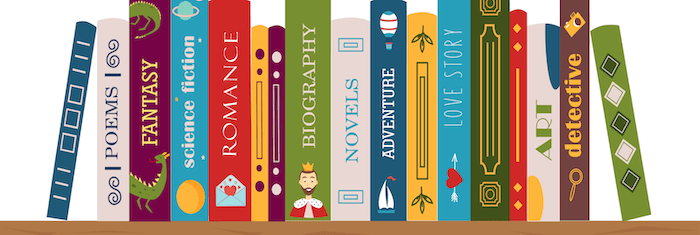
#6 Mystery/Crime
Mystery/Crime was not far off from Thriller, in having 102 deals. Hmm, interesting indeed…
It is possible that the Thriller genre category may be eating into some of the deal reporting behind Mystery/Crime as the two genres have many things in common.
Regardless of the overlap, there is some distinction behind what makes for a Thriller, versus what makes for a Mystery/Crime novel. For instance, a Thriller will often be far more plot-driven, whereas a Mystery/Crime concerns itself more so with solving a mystery or crime.
#7 New Adult
New Adult comes in next with 28 deals. The not-so-new kid on the block anymore.
If there ever was a flash in the pan in book publishing genres, it was the New Adult genre.
Several years ago, self-publishing eBook romance authors began writing to an audience slightly smuttier and older than Young Adult. Writers and publishers coined the term “New Adult” since characters contained in the genre usually fell somewhere in the ages of 18+. The New Adult phenomenon was driven by a number of factors, from Romance fan fiction, to audiences reading up in age, as well as audiences reading down in age.
But nowadays, the numbers are dwindling every year. I would not recommend labeling your book in this genre.
#8 Inspirational
Not far behind New Adult is Inspirational, ranking third-to-last in the coldest genres with 25 deals. Someone pray for this genre.
Though let us be careful with how we read this data. As with Paranormal and Horror, authors, agents and publishers may be quick to choose a different label, such as General/Other Fiction or Debut, over Inspirational.
Similar to the group of buyers of Sci-Fi/Fantasy being smaller, the Inspirational or Christian Fiction book market is tinier than the overall General/Other Fiction marketplace, with just a very small handful of major buyers.
#9 Horror
Before Paranormal, the lowest of rankings, the next weakest genre is Horror with only 21 deals. That’s pretty scary.
No surprise there as it is something of a counterpart to Paranormal. Horror got this “dirty word” association—even if an author was writing Horror, they could never refer to it as such.
Horror then experienced a bottleneck of authors getting published in that genre—where just a few select authors such as Dean Koontz (a former Trident Media Group client who I met and knew personally) and Stephen King kept a stranglehold on Horror.
In looking at Horror’s eight overall volume of deals being slightly on the rise over four six-figure+ deals, this genre may actually be on the rise again.
#10 Paranormal
Without exception, Paranormal is the coldest genre with only 11 deals between the between the six-figure+ deals and overall deals categories. Ouch.
Many professionals in the publishing industry attribute this to the fact that Paranormal Romance was a much bigger genre in the 90s and early 2000s, but the audience changed and grew, while focusing the genre in on some key players, such as Christine Feehan, Jane Ann Krentz, Lyndsay Sands and a few others.
Similar to Horror, the genre label of Paranormal in book publishing came to be known as a “dirty word” not to be used in describing one’s genre, as it became an underperforming genre. Authors in this category were likely encouraged to use genre tags such as Women’s Fiction/Romance or Sci-Fi/Fantasy.
Frequently Asked Questions
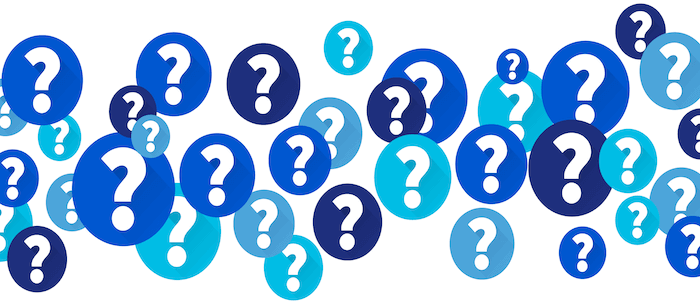
- If my chosen genre is not a particularly strong genre at the moment, such as Paranormal, can I relabel my genre as a stronger genre, such as Sci-Fi/Fantasy?
Absolutely. Especially if your subgenre fits within another genre (Horror/Sci-Fi/Fantasy, Mystery/Crime/Thriller, etc.)
When pitching agents and publishers, it is sometimes better to be more general than specific. The agent or the publisher can make their own determination, but being more general might help you get your foot in the door more easily than being too specific.
- What do I do if I do not see my chosen genre on the above list of category genres? How and where would I fit in?
These are very big umbrella terms commonly used within major trade book publishing. With that being said, not every genre may find a home very easily in the above categories.
In such instances, it may be recommended to use an umbrella genre category term, along with your specific subgenre. (Example: “I’ve written a work of Afrofuturism/Sci-Fi for readers of…”)
- Is it better to be specific about genres, such as getting into subcategories of genres, or is it better to be more general when choosing a genre tag to use?
Unless the subgenre is very hot at the moment (i.e., Romantic Comedy, etc.), it is usually best to be more general as to not pigeonhole oneself. Oftentimes, literary agents and editors can infer what the particular subgenre withing the overall genre might be.
- Could it perhaps be better to be writing within an up-and-coming genre than a genre that occupies a very crowded space?
Almost every genre has its day in the sunshine, cools off for a while and then always seems to come back again for more sunshine.
The question is: when will that genre come back? It’s hard to say, but I have seen some of the ebb and flow of genres and subgenres, such as Horror or Romantic Comedy, fade and then make a bit of a comeback. I write about how popularity changes fast and that it’s important to stay on top of the market in an article on Sci-Fi/Fantasy for Mythcreants titled Will Your Subgenre Prevent You From Getting Published?
- Should I focus my genre more on six-figure+ deals (amount of $$$ for deals), or overall lifetime volume of deals (###)?
It all depends on what your overall goal is… whether you’re in it to marry for love or money, most writers are looking to get one’s book out into the world.
In that case, focusing on overall number of deals may be more useful than fixating on amount of money for deals. Though who doesn’t love a good payday?
- Why does book publishing use a ranking of deals? Does a ranking of deals even matter?
This was really created as a means to simplify the overall deal-tracking process and create something of a book publishing rolodex in the process. Of course, certain subcategories may still make very little or no sense.
- For instance, Mystery/Crime is often believed to be a subgenre of Thriller
- Paranormal and Horror are subgenres of Sci-Fi/Fantasy
- Debut may even be viewed as a subcategory of General/Other Fiction.
In my personal opinion, some of the tired and old genres which are still listed there online needn’t be tracked on their own anymore.
- How accurate is this data if when reporting a deal, the person making the report can select the genre, while the site reporting deals can change the genre?
As I mentioned before, underneath every piece of data is always someone’s lived experience. For instance, through Trident Media Group I recently made a deal for New York Times bestselling author Colleen Houck’s TIGER’S TALE and I listed the deal as Young Adult, though I could have just as easily listed it under Children’s Fantasy or Sci-Fi/Fantasy.
At the same time, I’ve experienced instances where I listed a deal under one category, and deal reporting sites elected to list it under another category. The audacity!
- Is this reporting of deals more valuable to me in knowing which literary agent at a literary agency to contact for a specific genre?
Certainly, indeed! By drilling down into the information contained within the data, a writer looking to target a specific literary agent or an editor at a publishing house can find out which publishing professionals are working within a specific genre.
- What if I do not want to list my genre at all?
That is totally possible as well. In fact, literary agents and editors can often infer what a genre or subgenre might be just from reading a short book description, query letter, or even a sample of the manuscript.
That being said, the focus of this article is more about the way a writer chooses to label their own work.
- I really do not appreciate you referring to my genre as “Colder” or weaker, while other genres are referred to as “Hotter” or stronger. What’s with all the separating the wheat from the chaff?
This is not middle school where writers are being selected like teammates in dodgeball. It is simply about knowing how to best present oneself and assess the challenges of the marketplace.
AUTHOR BIO:
Mark Gottlieb is a prominent literary agent working at book publishing’s leading literary agency Trident Media Group in New York City. While at Trident Media Group, Mark Gottlieb has represented New York Times bestselling authors as well as major award-winning authors, and has optioned and sold numerous books to production companies and studios for film and TV adaptation. In addition to having worked at the company’s Foreign Rights Department, he also ran the company’s Audiobook Department. He is currently expanding his client list of authors.

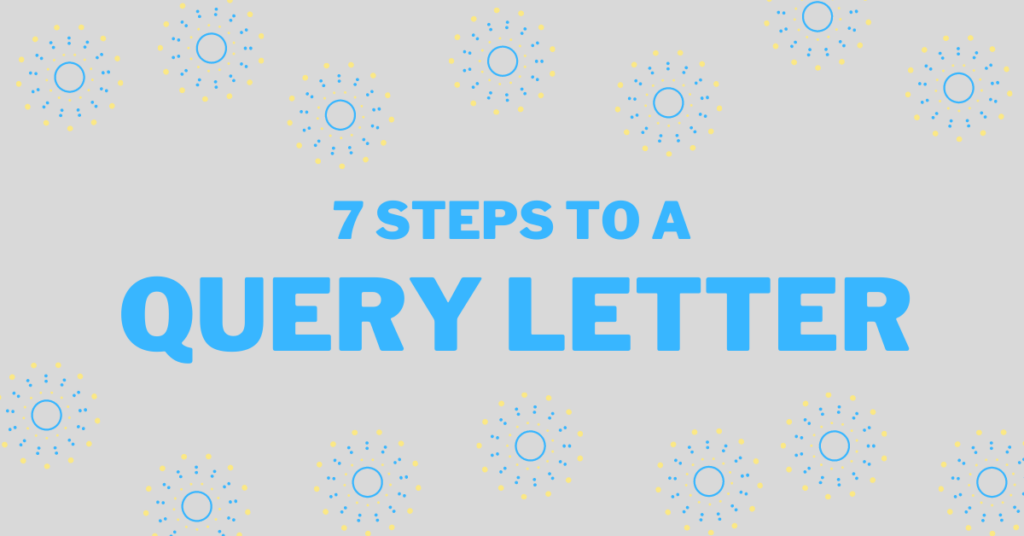

2 comments
Awesome article. Bang and punch. Thanks a million, Mark!
This article would be more useful if it were dated, or if the data reported was dated. Coming to this article after searching under “fiction genres” – I have no idea if this article was based on last year’s data or from ten years ago. Of course, knowing which 3 publishers would also be useful as some publishers favor some types of work over others.